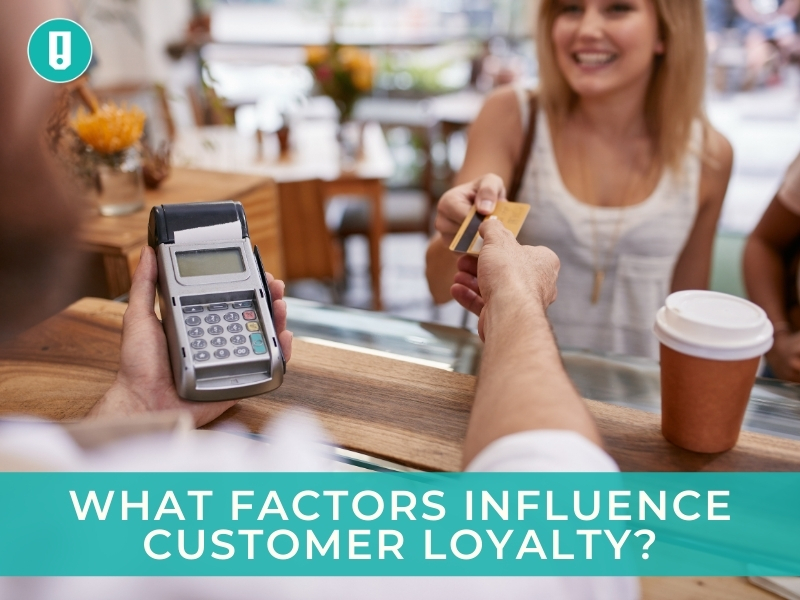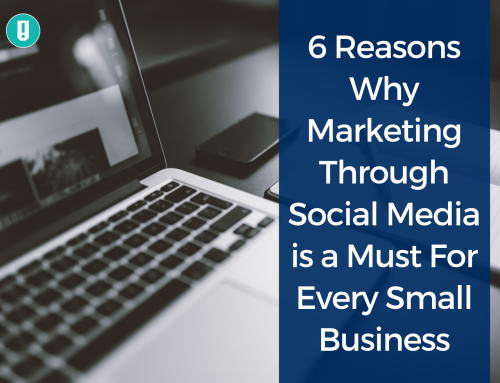Attracting customers and making them return again are the main challenges businesses face all the time. No matter what you sell, you don’t want your customers to forget about you as soon as they buy something. A successful business needs loyal customers because they offer a number of unique benefits:
- They are more likely to buy something
When someone is already satisfied with your products, they are more interested in your new products, as well. - Loyal customers save marketing costs
Attracting new customers costs more than connecting with the already existing ones. The existing customers don’t require you to research the market and to search for the best approach to engage with them. - They generate word-of-mouth
Loyal customers can also promote your brand. When someone uses your products or services all the time, they are likely to recommend your brand to their friends.
Loyal customers are beneficial for both brick-and-mortar and online businesses, no matter what the industry. Therefore, it’s important to know how you can make your customers want to come back over and over again. Unfortunately, there’s no single trick that would give you immediate results, because you have to take into account various factors.
What You Should Know About Brand Loyalty
Some business owners and marketers think that it’s enough to provide high-quality products or services so that customers will be satisfied. However, there is a difference between satisfied and loyal customers. Of course, businesses should do their best to satisfy each and every customer, but customers’ satisfaction won’t guarantee that they will continue to purchase from you. If you don’t want your customers to choose your competitors who offer a lower price or some additional benefits, you should stand out and build strong relationships.
The modern market is extremely competitive. In fact, it’s so competitive that many experts claim that customer loyalty no longer exists. According to research, 79% of millennials don’t care about brands and only make their purchasing decisions based on the quality of products and services. Given that the internet allows everyone to compare similar products in just a few clicks, people can make more informed decisions, being less driven by emotions.
However, there is also research data that proves that brand loyalty hasn’t gone anywhere. For instance, 77% of consumers say that they’ve been loyal to some brands for at least 10 years. More than 90% of American consumers note that now they are equally or more loyal to their favorite brands that a year ago, and 72% of adult Americans participate in at least one loyalty program. If you want to benefit from the phenomenon of brand loyalty, you should know what factors are responsible for it.
Factors that Influence Customer Loyalty
- Uniqueness
First, if you want to catch consumers’ attention, you should offer something unique. No matter what your industry is, the chances are that there are dozens of brands similar to yours. Therefore, you should either offer a completely new product or present your brand in a unique way. Given that coming up with a new product is not always an option, you should attract loyal customers with a unique brand image.
Although novelty isn’t the main secret that will necessarily increase loyalty, it helps create the right first impression when people discover your products or services. It turns out that novelty makes us remember things better. Your brand will seem more familiar to customers, and their positive feelings will stay fresh in their memories, making them want to come back.
- Emotional dependence
Emotional dependence occurs when customers need a brand for decision-making, guidance, and support. When customers see your brand as the one that performs difficult actions or makes decisions, they become emotionally dependent because, without you, things may not go as expected. In turn, emotional dependence triggers empathy and feelings of reliability and integrity.
To cultivate emotional dependence, you should try to exceed your customers’ expectations and learn their values. Let your customers know that they are very important to you and demonstrate empathy when you see that they get emotional about a certain issue. In addition, you should connect with your customers on a personal level and make sure that they can always receive timely support.
- Positive associations
Many of our decisions are based on associations because they connect our experiences and emotions. For example, when we eat tasty food, our body experiences a release of dopamine, which makes us feel good. Therefore, we associate tasty food with positive emotions.
You can create positive associations by providing the best customer experience possible, while also emphasizing your brand in the context of this experience. For example, you can use branded materials or slogans to reinforce the connection between a good experience and your brand. However, you should keep in mind that you cannot build associations quickly. Your customers will become more and more loyal every time they get a positive experience.
- Identity
People are a social species, and we build relationships with each other based on identities. We tend to stick close to people who are similar to us and avoid those who are different. This phenomenon is called tribalism, and that’s what many political concepts are based on. We can also observe tribalism in sports. Businesses also use tribalism and identity to cultivate loyalty among customers, which is a very effective strategy.
Building a strong brand identity takes a lot of effort because you should make sure that every piece of your marketing content reflects your brand values. Therefore, you should be very careful when working with freelance copywriters and writing services. For example, you can check out Best Writers Online to make sure that your web copy will be written by professionals who understand your brand values and can properly communicate your brand identity.
- Economic value
Economic value is about the financial benefits of a customers’ relationship with your brand. This factor is especially important for B2B companies, as their customers care about the return on investment. In this case, a company must demonstrate that it can help its customers make more money or reduce expenses.
To use this strategy effectively, you should communicate with your customers so that you can understand how your solution impacts them. It’s also important to make sure that people inside the customer’s organization know and understand the economic value of your solution. The more people inside the organization understand your economic value, the more loyal they will be.
- Satisfaction
Last but not least, customer loyalty depends on customer satisfaction. Your customers’ satisfaction with your services, delivery, and support often indicates how well your business performs. It’s important to measure customer satisfaction so that you can be sure that you can successfully deliver something if you need. However, you shouldn’t use customer satisfaction as the only metric when evaluating loyalty.
To increase customer satisfaction, you should determine your customers’ expectations and needs. Besides, how you deliver something is no less important than what you deliver. Emotions play a very important role in customer satisfaction. We recommend that you use questionnaires and surveys to assess customer satisfaction and determine what areas need some improvement.
Conclusion
Customer loyalty is very beneficial for businesses of any kind. However, making your customers come back and buy from you over and over again isn’t an easy task. Customer loyalty depends on various psychological factors and the only way to cultivate it is to provide great customer experience, while also building strong relationships with your customers.
Fortunately, people tend to feel an emotional connection with brands that solve their problems, deliver a great experience, and understand their values. If you take into account the key factors that influence customer loyalty, you will be able to create a brand that outperforms competitors because customers love it and make it an integral part of their lives.
Tiffany Porter has been working as a Chief Writer at Online Writers Rating reviewing variety of writing services websites. She is a professional writing expert on such topics as digital marketing, blogging, design. She also likes traveling and speaks German and French.






Leave A Comment